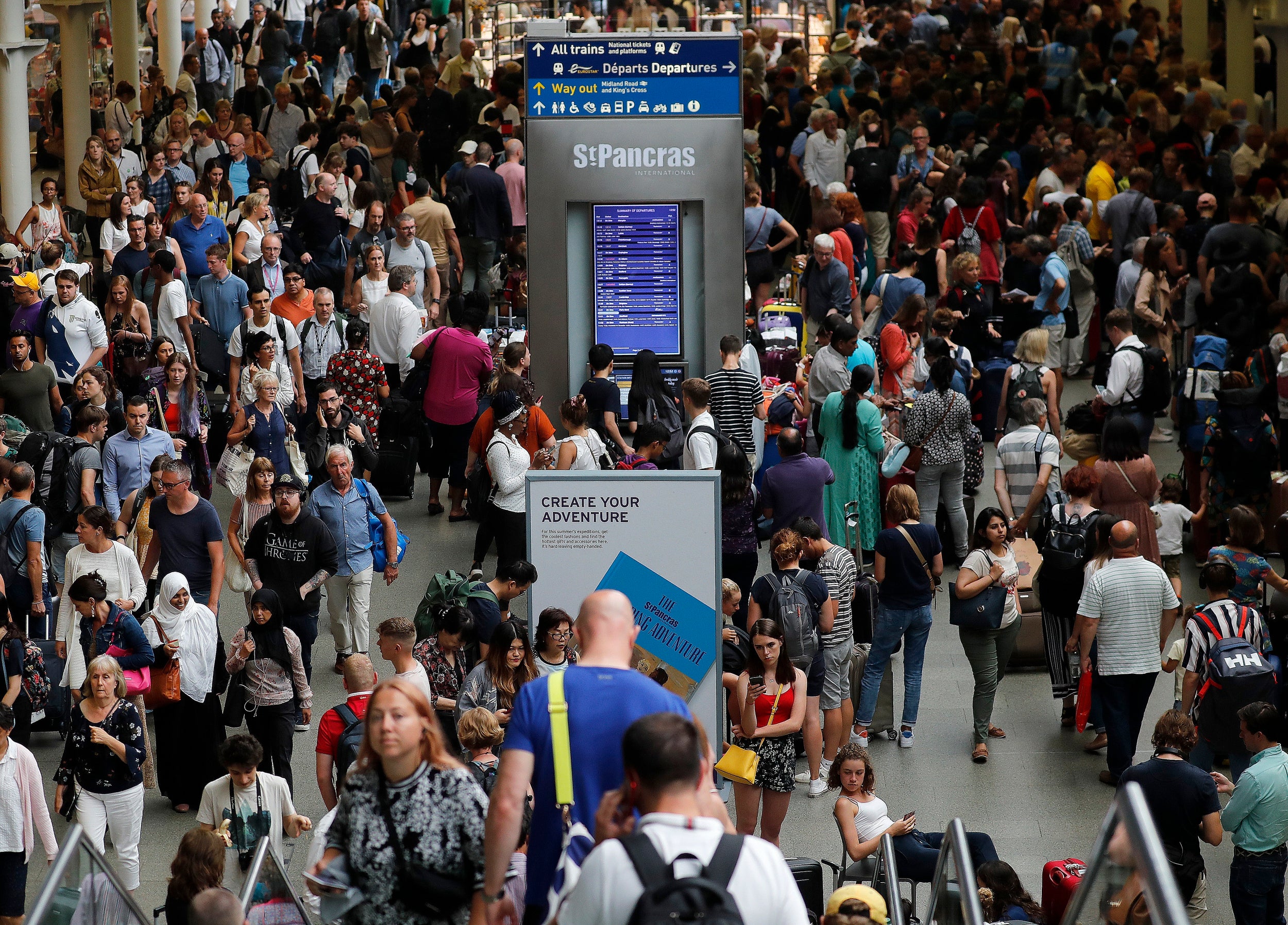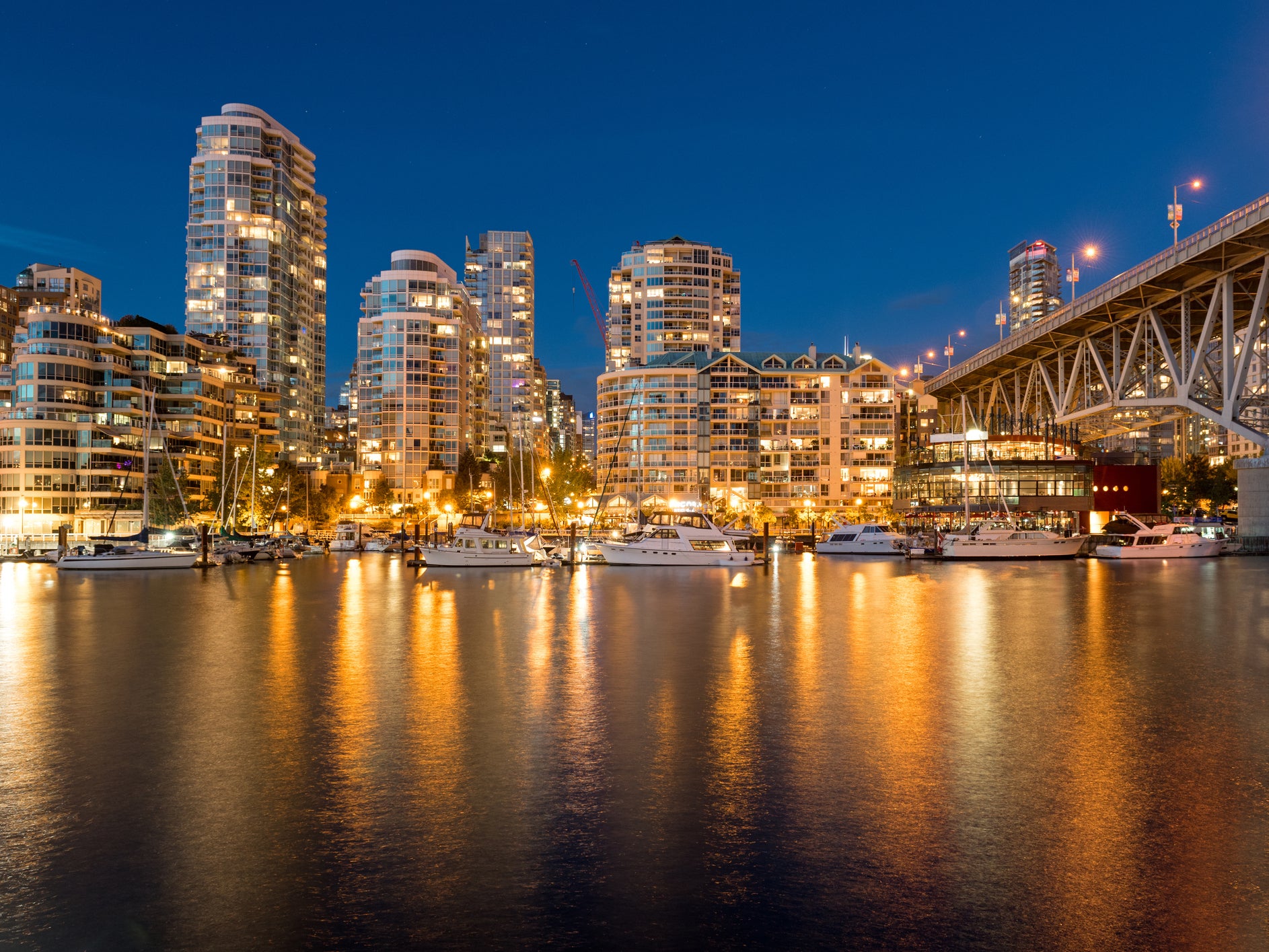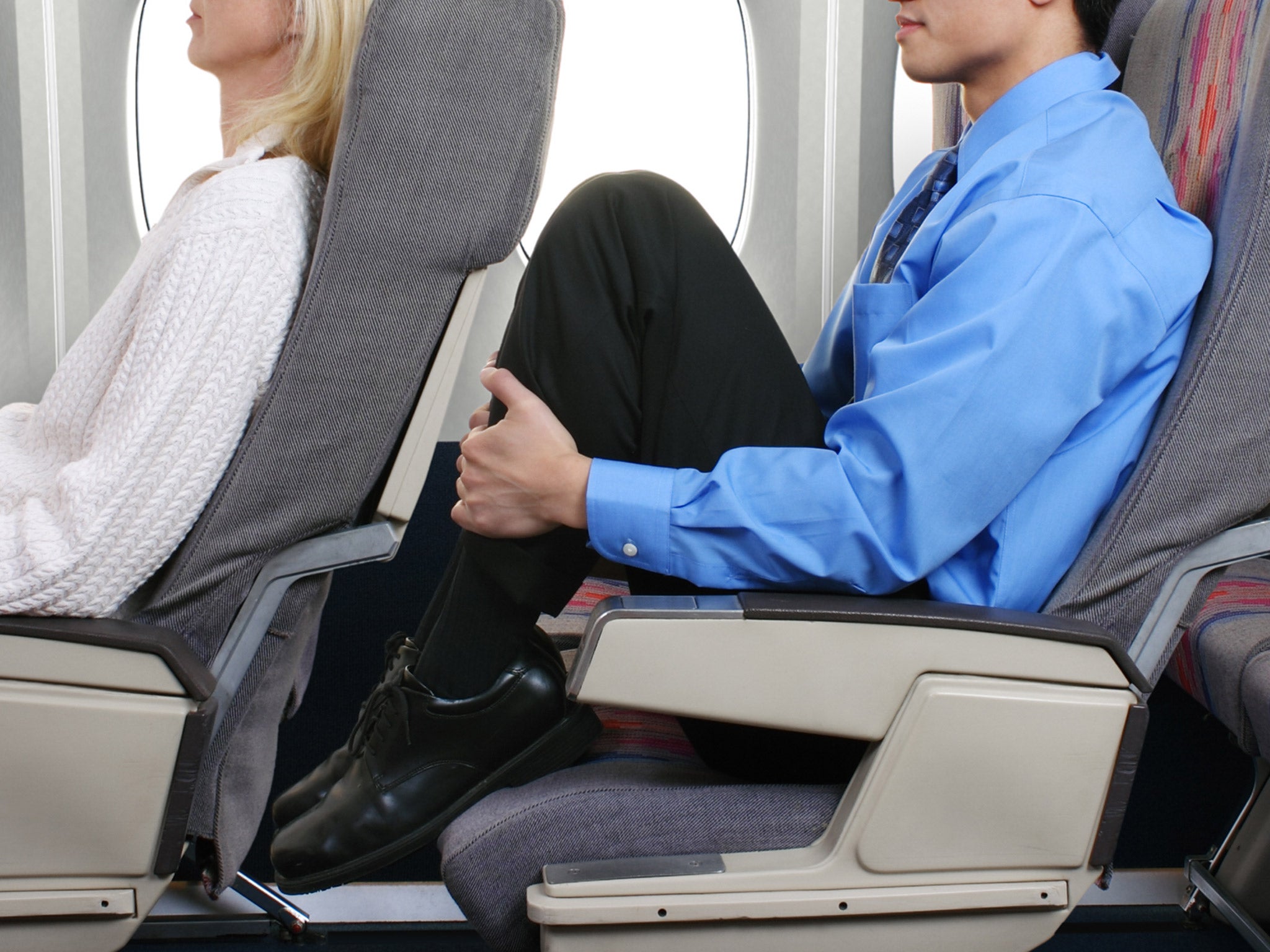Rail meltdown, flight delays and getting more leg room
Got a question? Our expert, Simon Calder, can help


Q Can you please explain why East Midland Trains are subject to severe disruption because of overhead electric wires, when all their fleet is diesel?
Thomas G
A Four days of severe disruption on the line from Sheffield, Derby, Nottingham and Leicester to London St Pancras began on the hottest day of the year, last Thursday. East Midlands Trains is finally hoping to run a normal service from today onwards – using, as you say, all-diesel trains.
The chaos began when overhead lines close to St Pancras came down. The tracks are shared with Thameslink trains, which – for the northern part of their journeys – get their power from overhead lines. The extreme heat appears to have caused the wires to sag, which made them susceptible to damage from passing trains.
A power line came down, and all tracks were closed on Thursday afternoon and evening while Network Rail engineers made repairs. By Friday two of the four tracks were open. But because the Thameslink service includes some slow, stopping trains, the available “paths” for East Midlands express trains were very limited.
The train operator urged passengers not to travel over the weekend. If you were planning to do so, and had an unused ticket for any date between 25 and 28 July, then it can be used on any day this week. The chaos caused by the overhead lines is all the more aggravating for regular East Midlands passengers who know that the chances of all-electric trains – with the cleaner, quieter, quicker journeys they offer – are unlikely to arrive any year soon. A planned scheme to electrify the line between London and Sheffield was scaled back two years ago, and the wires will not even reach as far north as Leicester.
Next time a heat extreme is predicted, though, it may be that only diesel trains are permitted to run – to avoid exactly the problems on Thursday, when overhead lines in many parts of the rail network were damaged. So East Midlands Trains passengers may at last get something favourable.

Q We recently travelled to Canada with Air Transat. Our return flight from Vancouver to Gatwick was delayed for over four hours due to a technical problem. According to European law, a delay for over three hours entitles us to €600 compensation per passenger. We have contacted Air Transat and they have responded, one month later, that we should seek compensation from our own travel insurance. I would welcome your advice on how to proceed?
Chris R
A Sorry: first, about the delay, and second because this interpretation of the European air passengers’ rights rules is slightly wide of the mark and therefore you cannot expect any payout. The regulations, known as EU261, can oblige an airline to provide care in the event of a long delay, whatever the cause. They also stipulate compensation if the airline is at fault (as opposed to extraneous factors such as bad weather or air-traffic control problems – both of which beset flights on Friday).
The compensation scale ranges from €250, for shorter flights, to €600, for longer trips. (There is a curious wrinkle that specifies €300 for long-haul delays of between three and four hours.) However, this is all academic. Although your delay was more than four hours and was the airline’s responsibility, any claim fails on another aspect of the rules.
EU261 applies to all flights from European airports. The law also covers departures from outside the EU on European Union airlines. But it does not apply to a non-European airline flying from an airport outside the EU, as happened in your case. So Air Transat was quite entitled to reject your claim – though why it took a month to do so is beyond me.
If you have suffered specific financial damage caused by the airline’s delay, such as having to buy replacement onward rail tickets or unexpectedly stay in a hotel overnight, then you can go back to Air Transat and file a claim for recompense under the Montreal Convention. This is not Canadian legislation, but a worldwide treaty.

Q I am booked on a fly-cruise through Iglu. The flight is with easyJet to Venice where we pick up the cruise ship. What happens if the easyJet flight is delayed or cancelled and we miss the departure of the cruise ship?
Dennis R
A Your enquiry is timely, because regrettably there are hundreds of people this weekend who are wondering right now how to connect with their cruise ships. They were caught up in the wholesale cancellation of British Airways flights from Heathrow and easyJet departures from Gatwick following extreme weather and air-traffic control problems. Many cruise-related flights to Venice, Palma and Athens were among those cancelled.
Those who booked flights and cruises separately are desperately trying to find seats over the busiest weekend of the year in order to reach the port before their ship leaves.
Fortunately, you have done the right thing by booking a fly-cruise. You have booked a package holiday under the definition of the Package Travel Regulations, which means that the company must deliver what you bought – or make amends.
The chance that your flight to Venice will be seriously delayed or cancelled is low. But if it is, and your chances of joining the ship are jeopardised, then Iglu must do all it can to find alternative flights. In this deal, easyJet is providing Iglu with a service in connection with Iglu’s contract with you.
While airlines are required to get you to your destination as soon as possible, they are not, in my experience, as adroit as they might be in sourcing alternative flights. But since Iglu has a financial interest in getting you to the ship, it may be more nimble.
If you miss the ship in Venice, not all is lost: Iglu can try to get you to the next port, again at its expense. But if it reaches the point where you have to forego the whole trip, at least you will be sure of getting all your money back.

Q I need to travel to the Philippines for a wedding next August. I am really worried at having a 15-hour flight cramped in a tight-fitting seat. Apart from having a fear of flying I am on permanent medication for previous deep vein thrombosis and weigh in at 25 stone.
Is there any way I can get a guaranteed larger seat, or do I have to go first class?
Name supplied
A Sorry to learn of your health issues. You should consult fully with your GP about your plans, so that she or he can advise on the medical aspects of a trip like this. But I hope I can help with the travel aspects. Policies among airlines about “passengers of size” are annoyingly random, but of the carriers that link the UK with the Mediterranean, the one that has the most positive approach is Air France.
The airline recommends that if your waist measurement is 53 inches (135cm) or more, then you are unlikely to be comfortable in an economy-class seat. “You will then be guaranteed an empty seat next to yours, for your comfort and safety,” said the airline. But it has a unique offer for people who want to reserve an extra seat next to them: the second will get a 25 per cent discount in the economy cabin, and even better than that: “Air France will reimburse the entirety of your second seat fare if there are unoccupied seats in your cabin.”
So it is a bit of a gamble, but there is a fair chance the airline will allocate you two seats and you will end up paying for only one. In August, you might find a fare from one of the numerous UK airports served by Air France via Paris to Manila of around £800 – with another £600 maximum for the second seat.
If your budget can stretch further, then a range of airlines will take you from the UK to the Philippines for £2,000 or more in business class. While the cheapest are likely to be Chinese carriers, you might find a stopover in the Gulf is best. Not only are there plenty of UK departure points – it will also split the journey into two roughly even stretches of seven or eight hours. You could also build in a stopover in Abu Dhabi, Doha or Dubai, which would help reduce the risks of DVT.
Whichever you choose, though, I recommend you do not book until very shortly before departure, to reduce the risk that you have unfortunately to cancel due to a deterioration in your health. This may also help keep your travel insurance within reasonable bounds.
Email your question to s@hols.tv or tweet @simoncalder
Join our commenting forum
Join thought-provoking conversations, follow other Independent readers and see their replies
Comments
Bookmark popover
Removed from bookmarks